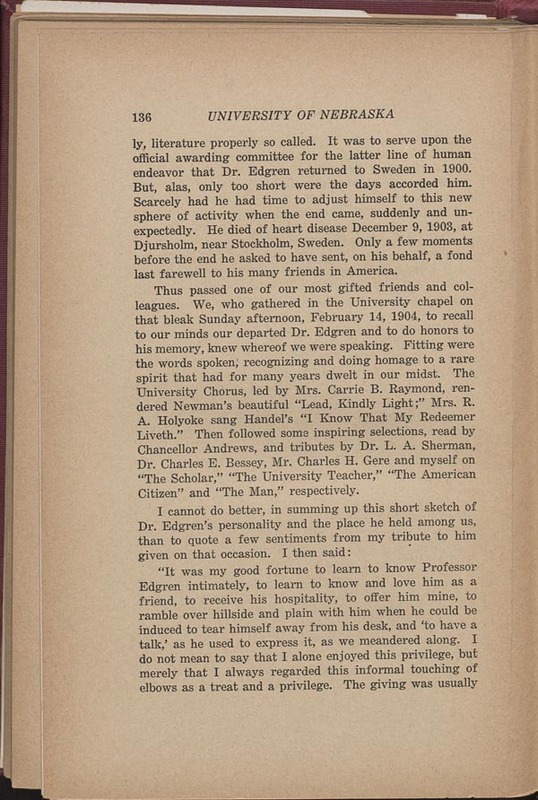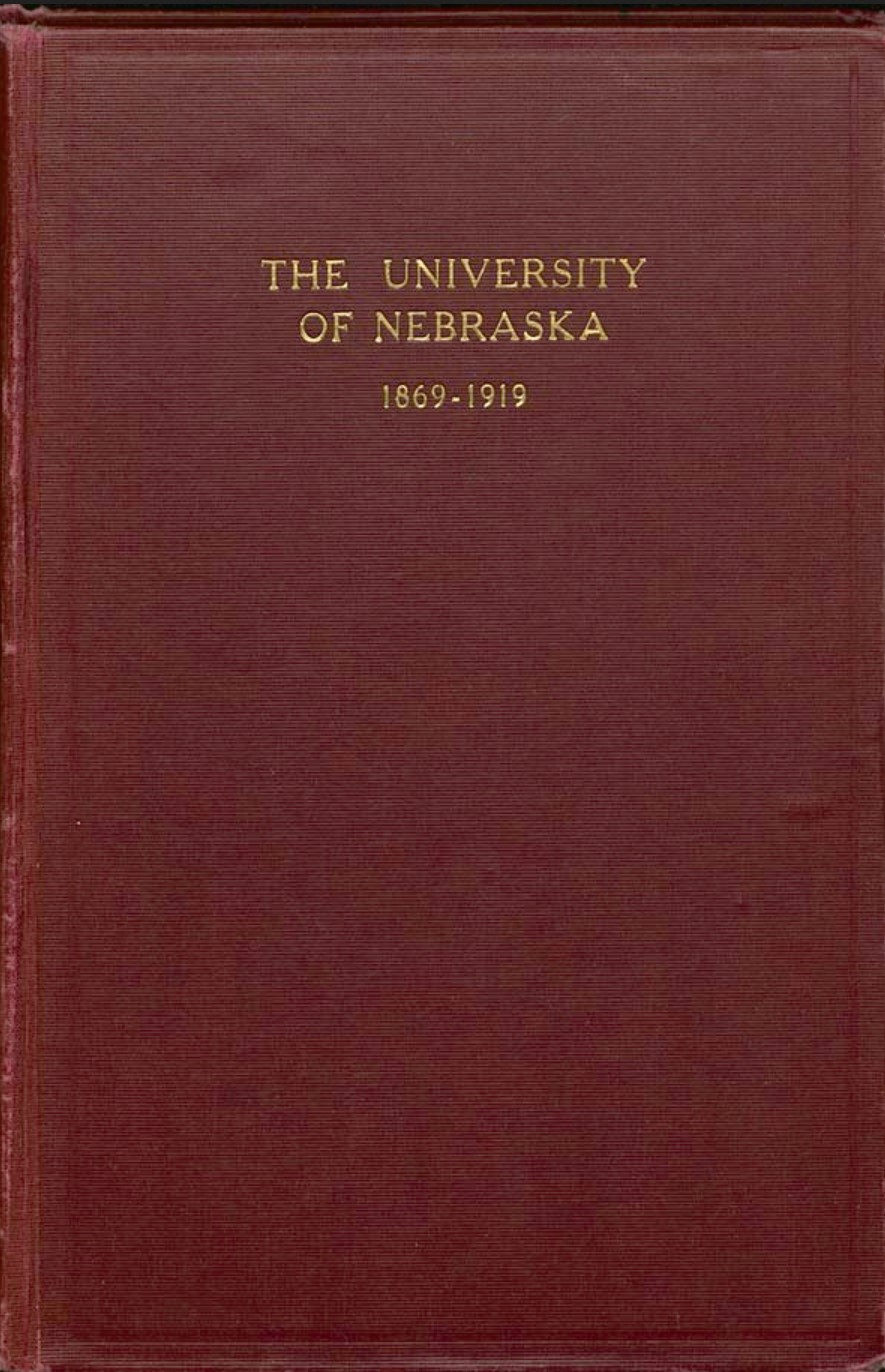148
Item
-
Title
-
148
-
Description
-
Semi-Centennial Anniversary Book: The University of Nebraska, 1869-1919
-
Transcription
-
Page Image
ly, literature properly so called. It was to serve upon the official awarding committee for the latter line of human endeavor that Dr. Edgren returned to Sweden in 1900. But, alas, only too short were the days accorded him. Scarcely had he had time to adjust himself to this new sphere of activity when the end came, suddenly and unexpectedly. He died of heart disease December 9, 1903, at Djursholm, near Stockholm, Sweden. Only a few moments before the end he asked to have sent, on his behalf, a fond last farewell to his many friends in America.
Thus passed one of our most gifted friends and colleagues. We, who gathered in the University chapel on that bleak Sunday afternoon, February 14, 1904, to recall to our minds our departed Dr. Edgren and to do honors to his memory, knew whereof we were speaking. Fitting were the words spoken, recognizing and doing homage to a rare spirit that had for many years dwelt in our midst. The University Chorus, led by Mrs. Carrie B. Raymond, rendered Newman's beautiful "Lead, Kindly Light;" Mrs. R. A. Holyoke sang Handel's "I Know That My Redeemer Liveth." Then followed some inspiring selections, read by Chancellor Andrews, and tributes by Dr. L. A. Sherman, Dr. Charles E. Bessey, Mr. Charles H. Gere and myself on "The Scholar," "The University Teacher," "The American Citizen" and "The Man," respectively.
I cannot do better, in summing up this short sketch of Dr. Edgren's personality and the place he held among us. than to quote a few sentiments from my tribute to him given on that occasion. I then said:
"It was my good fortune to learn to know Professor Edgren intimately, to learn to know and love him as a friend, to receive his hospitality, to offer him mine, to ramble over hillside and plain with him when he could be induced to tear himself away from his desk, and 'to have a talk,' as he used to express it, as we meandered along. I do not mean to say that I alone enjoyed this privilege, but merely that I always regarded this informal touching of elbows as a treat and a privilege. The giving was usually
-
Rights
-
To inquire about usage, please contact Archives & Special Collections, University of Nebraska-Lincoln Libraries. These images are for educational use only. Not all images are available for publication.



